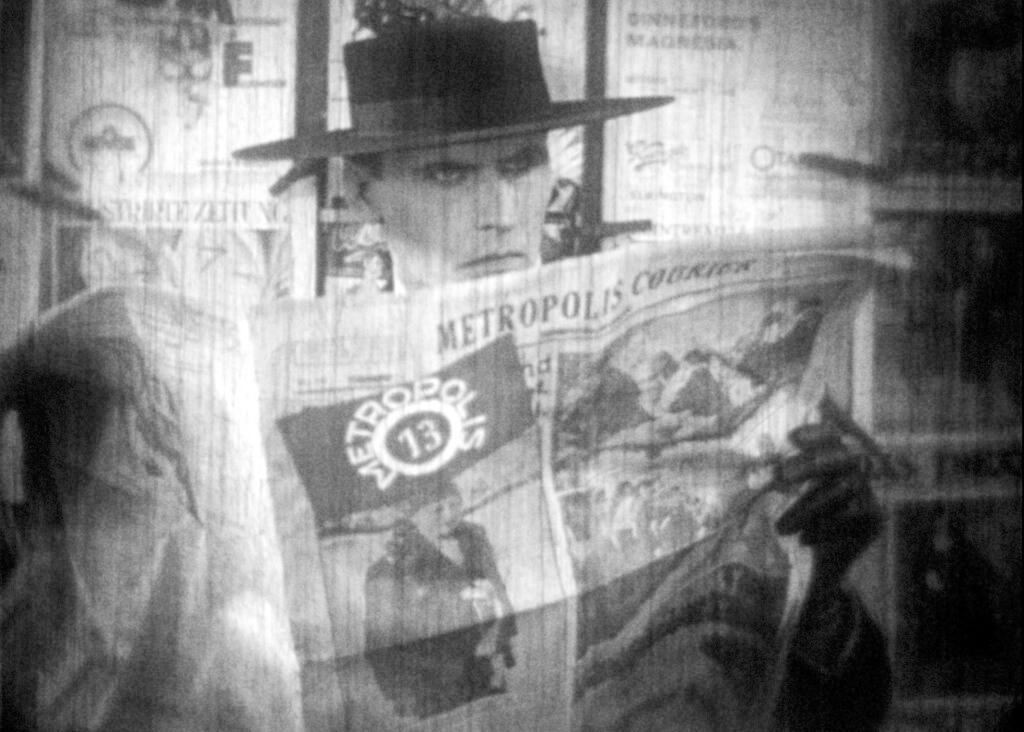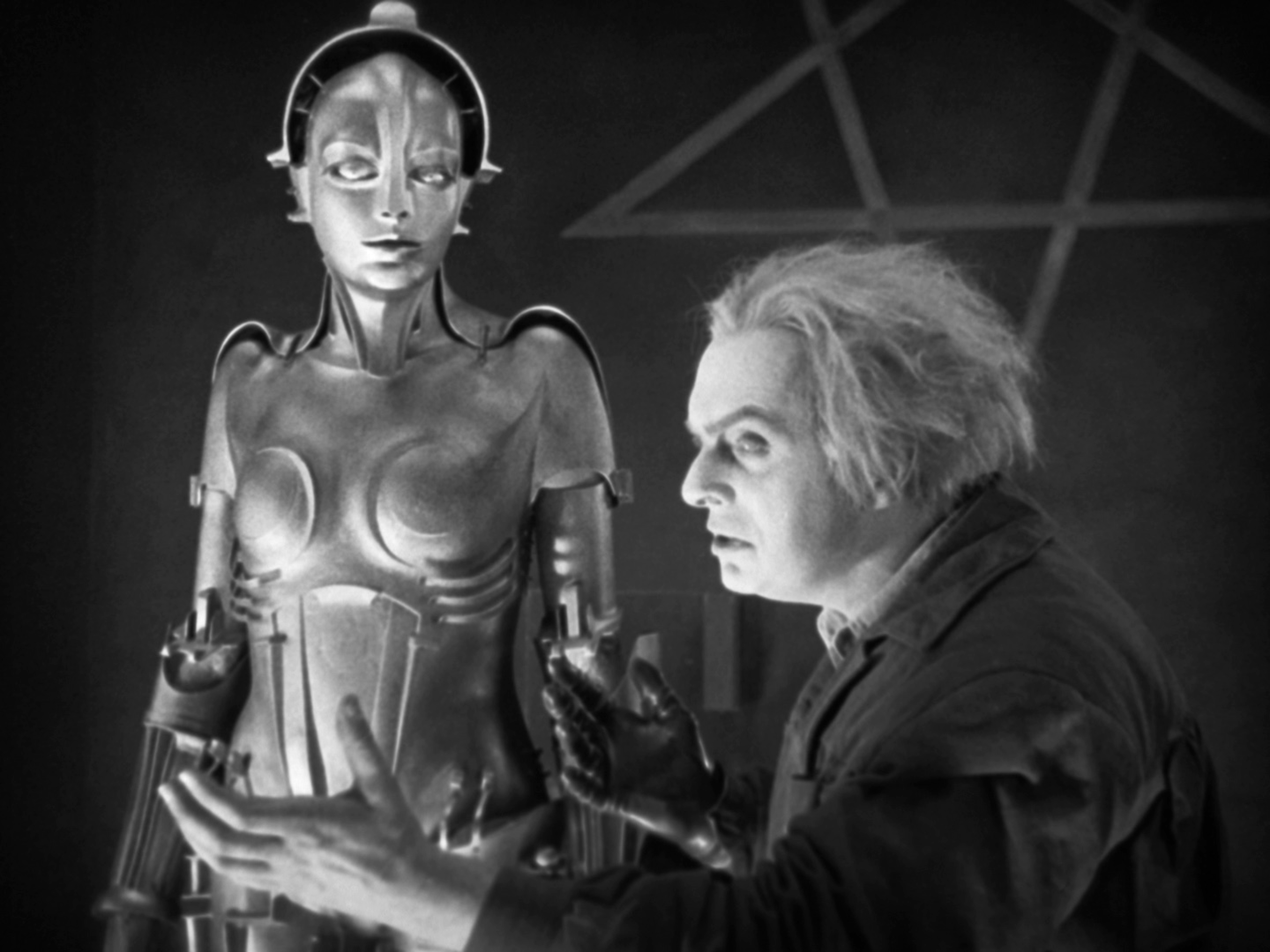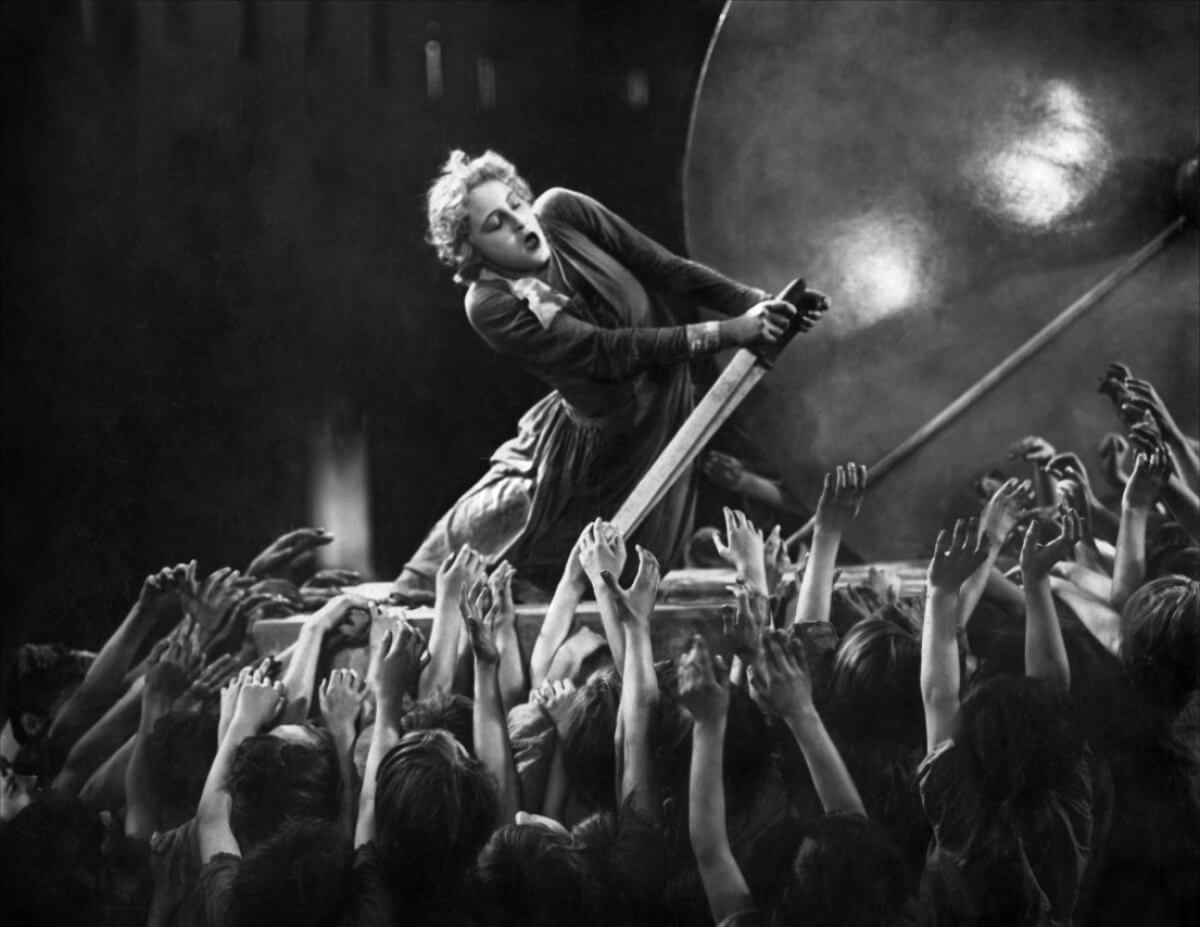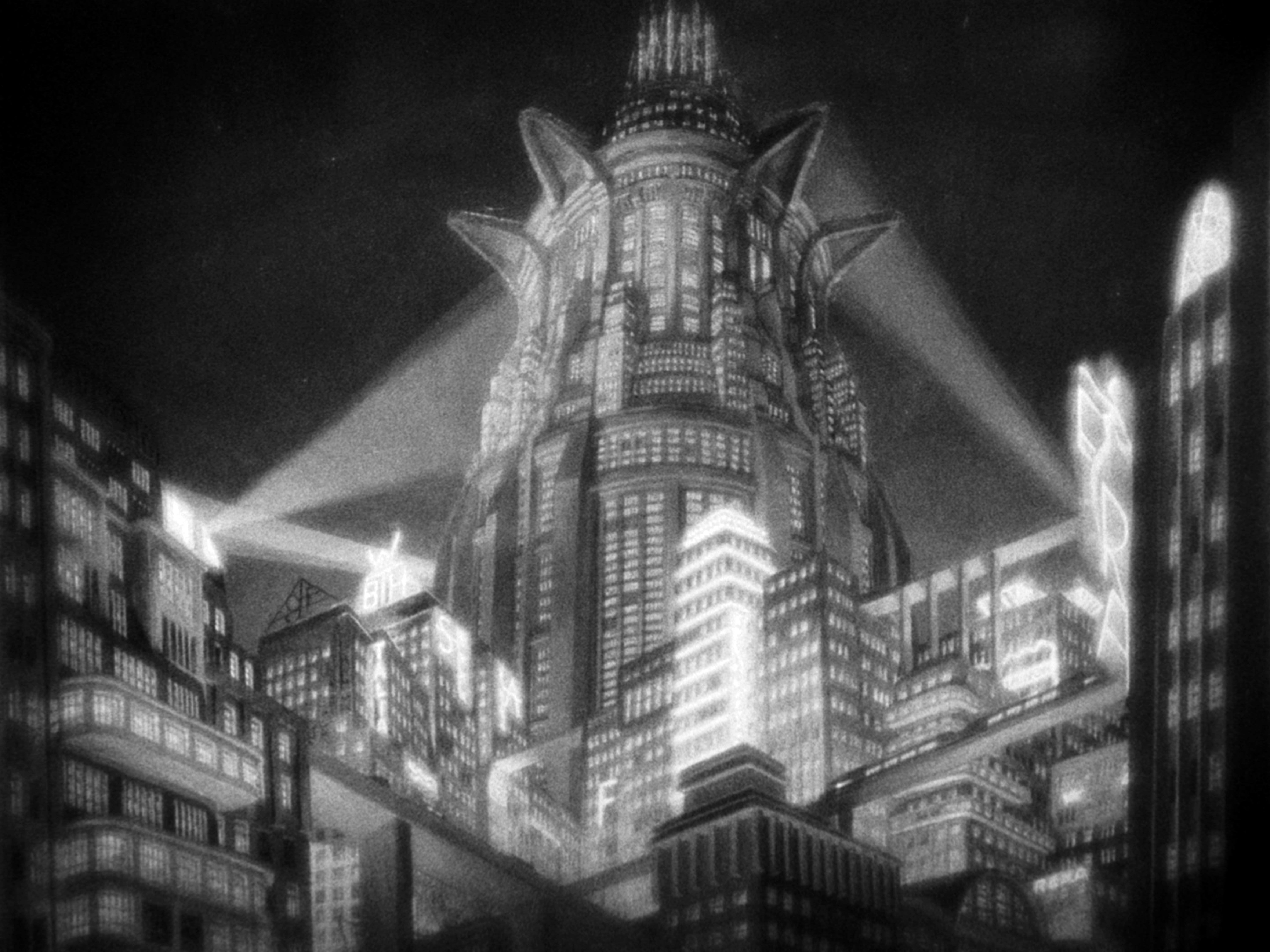By Owen Franklin
Premiered in Berlin in 1927, Metropolis was the most expensive film produced in Germany up until that point. With 36,000 extras, 200,000 costumes and costing 5m Reichsmarks it was the Titanic or the Avatar of its day.
We may be a decade shy of 2026, the setting for Fritz Lang’s Metropolis, but many elements of the film bear an eerie resemblance to the present day.
SKYPE

As with just about every sci-fi movie, Metropolis contains plenty of predictions regarding the future of technology. One New York Times review, hailing the film as “a technical marvel”, breathlessly described “a giant board with push buttons and a television…whereby he can see the man to whom he is talking.”
SURVEILLANCE

More sinister than Lang’s supposed vision of Skype is his fixation with the creeping nature of surveillance, embodied by the Gestapo-like figure of the Thin Man. The working classes are consigned to their subterranean dwellings – and yet Fredersen, the creator and ruler of Metropolis, is still compelled to spy on them, eavesdropping in case they decide to rebel.
ANDROID TECHNOLOGY

The most important technology in Metropolis is the robot itself – or should that be ‘herself’? “No one will be able to tell a Machine Man from a mortal!” declares the archetypal mad scientist Rotwang. The robot, Maria, is unnerving to behold, seducing the workers and Freder alike, instilling dissent through its fiery speeches and even dancing in a bizarrely erotic sequence that paved the way for Madonna and Lady GaGa’s music videos.
In a sense, Lang is warning of a future where technological advances mean that we are increasingly detached from actual relationships – a sobering caution in a world where the Internet’s anonymity allows people to behave online in ways they would never dare in person.
THE CLASS DIVIDE

Metropolis depicts a futuristic, dystopian city in which the upper and working classes are both literally and symbolically divided. This is a film about a society organized entirely around the requirements of capitalism and industry. The workers live like animals in underground caverns while the elite live and work above ground in modernist skyscrapers entertaining themselves in decadent nightclubs, sports arenas, lecture halls, theatres, pleasure gardens and brothels. Sound familiar?
POP CULTURE

Perhaps Lang’s most lasting prophecy, though, is both unwitting and self-fulfilling. While he did not live long enough to see Metropolis rightfully gain its place among the greatest films of all time, its legacy has echoed throughout popular culture ever since. As mentioned, pop stars have already pillaged its imagery for inspiration, but the whole science fiction genre has its roots in this movie, from Star Wars to Blade Runner to The Matrix. Although we may not always be aware of it, we are living in a (pop) culture heavily modelled by Langian design – surely this is the definition of a timeless classic.
Owen Franklin is director of Bristol Film Festival which takes place from March 9th to March 12th across the city. Visit bristolfilmfestival.com for more.
Bristol Jazz & Blues Festival will kick off on Thursday, March 16th with the premier of Andy Sheppard’s Metropolis Live featuring a brand new score with a 'wall of brass set against wild guitars and electronica laid over percussion, computers and treated and untreated saxophones'. Not to be missed!
Metropolis Live. Thursday, March 16th 20:00-21:30. Tickets £18/£22/£26

